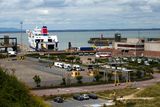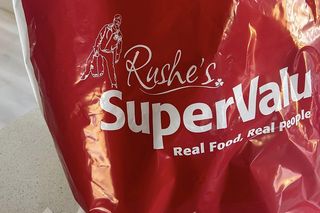Helping Irish firms meet global sustainability goals
The Climate Action Voucher can be used to develop a high-level plan in areas like renewable energy
The global race to Net Zero by 2050 has been overshadowed recently by Brexit and Covid-19, but this is changing now we are in a period of recovery. And just in time, as the issue is becoming increasingly urgent.
Larger businesses are now looking for their suppliers and partners to meet sustainability goals, while governments such as the UK and beyond are increasingly including sustainability criteria in their tenders.
Suppliers will need to demonstrate a clear and measurable approach to reducing their climate impacts in order to meet customer and stakeholder demands.
This is applicable for every industry, from electronics to life sciences to services and software, and more obvious sectors such as construction and food and beverages.
But as with all disruption, there are also opportunities. The race to low carbon is a global one, and much investment is being made in solutions and products that help countries and companies achieve their targets. This presents enormous opportunities on a global stage for fast-acting, innovative Irish companies.
To help Irish companies build the capabilities required to deliver sustainable products, services and business models, Enterprise Ireland has launched the Climate Enterprise Action Fund, consisting of three financial supports for companies at different stages of their sustainability journey.
The Climate Action Voucher is a 100pc funded grant worth €1,800 to engage an expert to identify opportunities for your business and develop a high-level plan in areas like resource efficiency, renewable energy and the circular economy.
GreenStart is 80pc funded and offers up to €5,000 to measure your company’s carbon footprint and identify ways to reduce emissions and improve efficient use of resources.
GreenStart can also be used to assist companies in carrying out a Life Cycle Assessment of their products and services and potentially attain Environmental Product Declarations that are widely used in the construction sector.
Read more
The third support is GreenPlus, which is for a company further along their journey or contemplating a larger project; it provides grant funding covering 50pc of training costs when developing a comprehensive sustainability plan and aligning to international standards and frameworks.
Taking steps now allows Irish companies to continue working with business partners under pressure to meet sustainable goals in every aspect of their supply chain; fast-moving and agile Irish companies can also compete globally for contracts and jobs that require certain sustainability criteria to be met – staying ahead of less flexible companies that perhaps need more time to meet those criteria.
Several successful Irish companies have already availed of the Climate Enterprise Action Fund to further their green goals. Youth marketing company Thinkhouse used the GreenStart grant to learn how to create an Organisational Environmental Impact Report. With the support and guidance of an external expert, Thinkhouse analysed its baseline impact and created a practical template for staff to manage the measurement of their operational impact into the future.
IT services company Ergo was also a recipient of GreenStart funding to help further its sustainability programme in 2021. The company’s plan is now aligned with seven of the UN Sustainable Development Goals for 2030, aiming ultimately for Net Zero. Ergo has also obtained ISO 14001 certification for Environmental Management.
A company further along in its sustainability programme, Nestlé’s Wyeth Nutrition factory was supported by the GreenPlus programme to become the first manufacturing site in Ireland to earn the global top standard of a Platinum certificate under the Alliance for Water Stewardship Standard. And, also supported by GreenPlus, John Sisk & Son became the first contractors in Ireland and the UK to achieve ISO 50001 certification in energy management. The company has also launched its 2030 Sustainability Roadmap, which contains 21 clear and ambitious targets linked to the UN Sustainable Development Goals.
These case studies demonstrate that every company and every industry needs to identify and achieve their own sustainability targets, both to stay competitive within their own sectors and to take advantage of the significant opportunities posed by Net Zero globally. Enterprise Ireland is there to help, both through advice and through financial grants.
Aidan McKenna is Manager, Climate Enterprise Action Fund at Enterprise Ireland. For more information on the Climate Enterprise Action Fund, see www.globalambition.ie/climate-enterprise-action-fund/
Join the Irish Independent WhatsApp channel
Stay up to date with all the latest news














